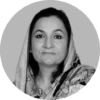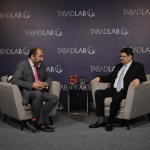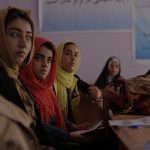You can download the e-reader friendly version here.
School Reopening: Managing Risks in the Covid-19 Era
The government’s decision to tentatively reopen schools on 15th September has spurred a nationwide debate on the safety of students, teachers and communities at large. While some experts believe that Pakistan should no longer sacrifice on learning outcomes, others argue that the reopening of schools – particularly if SOPs are not effectively implemented – can potentially trigger another surge in coronavirus cases. Tabadlab brought together education experts and policy leaders to analyse the costs and benefits attached to the crucial decision of reopening schools.
Featured Panelists

Mehnaz Akbar Aziz is a member of the National Assembly of Pakistan and Founding Director of Children’s Global Network Pakistan

Dr. Ayesha Razzaque is an Education Researcher and Consultant, and currently works as a Technical Consultant and Senior Sector Specialist in Education at UNDP, Pakistan

Dr. Faisal Bari is the Interim Dean at the School of Education (SOE) at LUMS. He also serves as the Director and Senior Research Fellow at IDEAS.

Nadya Karim-Shaw is the Portfolio Manager for Pakistan’s Girls’ Education Challenge grants and formerly the Country Representative for World Learning in Pakistan.

Maj (R) Aurangzeb Badini is the Deputy Commissioner of Quetta.
Discussion Summary
Coronavirus Trajectory
Some stakeholders in Pakistan’s education system, including students, point at the declining coronavirus cases in the country as sufficient grounds for reopening schools. Others believe that Pakistan should brace itself for another surge in cases, which could potentially be triggered by the reopening of schools and would cause another inevitable disruption to the education cycle.
Risk vs. Reward
Should schools be reopened when the lives of students, teachers, staff and the community at large are still at risk due to the pandemic? The myth that children and young adults are immune to the coronavirus has been proven wrong. In these extraordinary circumstances, is it more important to sustain learning outcomes or curb the spread of the virus?
Institutional Capacity
The Covid-19 pandemic differs from other disasters such as earthquakes and floods as its impact spans the course of many months or years. Are teachers and support staff ready to implement SOPs in schools? How will district administrations monitor the implementation of these SOPs, and who will be held responsible if something goes wrong? Does the government have the capacity to monitor private schools as well as madrassas?
Financial Constraints
The reopening of schools amidst a pandemic will require the adoption of new SOPs, use of protective equipment and training of teachers and staff. Without significant funds, schools will struggle to carry out these measures. Is the government’s education budget sufficient to implement these reforms in public schools? With no financial package announced for private schools, will parents be forced to bear the cost?
Unequal Opportunities
The inaccessibility of EdTech for the majority of students in Pakistan is a compelling argument for the reopening of schools. However, even after schools reopen, factors such as the number of students per class, size of campus and availability of protective equipment will give some schools an advantage over others. How can policymakers ensure that the existing education divide is not exacerbated after the reopening?
Learning Losses
Covid-19 has brought about a new host of challenges for Pakistan’s educators. Due to the prolonged closure of schools, teachers will struggle to bring students up to speed. Coupled with a physically restrictive learning environment, is it realistic to assume that learning will be the same as it was before the pandemic? Our speakers discuss whether schools should consider relaxing student learning outcomes.
A Resident Fellow and Head of Growth at Tabadlab.





